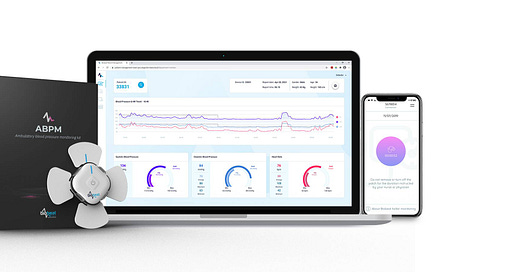Hello!
April brings warmer weather, longer days, and fresh starts. It’s the perfect time to think about what preventive care really means—not just avoiding illness but actively creating health. In this issue, we’re diving into what “heart health prevention and wellness” truly entails, how diabetes and heart disease are connected, and why knowing your numbers (like Lp(a)) matters more than ever.
What Does Heart Health Prevention and Wellness Mean?
At Heart Health Prevention and Wellness, prevention means taking a proactive, personalized approach to your heart health. This isn’t just about treating disease—it’s about stopping it before it starts.
Our focus is on:
Advanced Testing: Like cardiac imaging, wearable monitors, and labs beyond the standard lipid panel
Lifestyle Medicine: Nutrition, movement, sleep, stress, and substance use
Root Cause Analysis: Looking beyond symptoms to identify what’s driving your risk
Partnership: Helping you understand your health, not just manage it
The goal is simple: protect your heart, extend your life, and help you thrive. Learn more about my All-Inclusive Heart Health Program HERE.
Know Your Number: Lp(a)
Lipoprotein(a), or Lp(a), is a cholesterol particle that’s largely genetic and not routinely tested. Elevated Lp(a) increases the risk for heart attack, stroke, and aortic valve disease—even if your LDL is normal.
👉 Ask for it at least once in your life. 👉 It’s especially important if you have a family history of early heart disease. 👉 While lifestyle doesn’t lower Lp(a), knowing your level allows us to tailor your prevention plan—including more aggressive LDL targets.
I check it routinely in my practice. If you don’t know your number, let’s change that.
Recipes
Click HERE for this month's heart healthy recipes.
Patient Success Story: BioBeat for the Win
Denise, 62-year-old woman, came in after her primary care doctor said her blood pressure was high—something she’d never been told before. Denise suspected it was due to nerves at the appointment.
Rather than jumping straight to medication, we used a BioBeat 24-hour blood pressure patch, which takes readings every 15 minutes for 24 hours.
The result? Her average blood pressure was completely normal. Thanks to this data, we avoided unnecessary medication and gave her peace of mind.
This is why we personalize care—not every number tells the full story at first glance. You need a physician who has the time and inclination to to get to the bottom of things. Sign up for your free health consultation HERE.
The Diabetes–Heart Disease Connection
People with diabetes are 2–4 times more likely to die from heart disease than those without. High blood sugar damages blood vessels and nerves, increases inflammation, and worsens cholesterol and blood pressure—all of which strain the heart.
Key ways to reduce your risk:
Know your numbers – A1C, LDL, apoB, blood pressure. All of these numbers need to be very well-controlled.
Adopt heart-healthy eating – Eat a healthy whole-food, plant-based diet, the DASH or Mediterranean diet. Avoid packaged and processed food.
Move regularly – Aim for 150 minutes of moderate intensity aerobic exercise every week. And, add at least 2 days of strength training per week. Try to move more throughout the day and sit less.
Manage stress and sleep – Both impact blood sugar and blood pressure
Whether you have already have Type 2 diabetes or your are in the earlier stages of metabolic syndrome or insulin resistance, early intervention can dramatically change your heart health trajectory.
Consider my Heart Health Foundations course to learn about the pillars of good health.
Taking charge of your heart health doesn’t have to be overwhelming. With the right information, tools, and support, small steps can lead to big results.
Prevention starts today—with you.
Wishing you vibrant health and energy,
Dr. Tracy
This post is for educational and informational purposes only and solely as a self-help tool for your own use. I am not providing medical, psychological, or nutrition therapy advice. You should not use this information to diagnose or treat any health problems or illnesses without consulting your own medical practitioner. Always seek the advice of your own medical practitioner and/or mental health provider about your specific health situation. For my full Disclaimer, please go to www.hearthealth.care.









